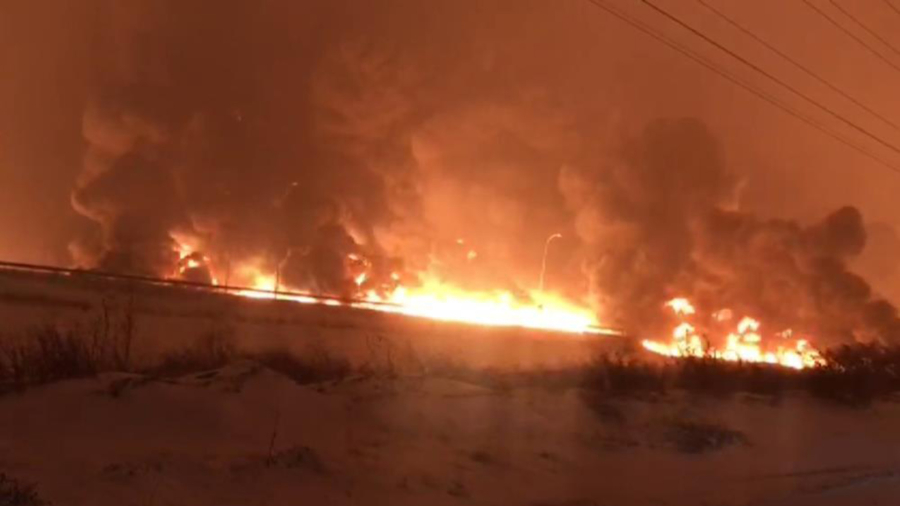A huge explosion hit a key oil pipeline in the city of Kahramanmaras in southeastern Turkey late on Tuesday evening, officials said, sending oil prices to a seven-year-high.
Turkey’s state pipeline operator Botas said in a statement that it had cut oil flow at the Kirkuk-Ceyhan pipeline following the explosion and that firefighters and emergency personnel has been working to put out the blaze.
The explosion occurred near the 511th kilometer (318th mile) of the pipeline in Kahramanmaraş province’s Pazarcık district at around 19.30 local time. It is not yet known what caused the eruption.
Botas said the company’s emergency teams, Kahramanmaraş municipality officials, Gaziantep municipality officials, and firefighters were working together to get the situation under control and that the fire had been put out.
“The oil pipeline will be back in operation as soon as possible after the necessary measures have been taken,” the company said.
Kahramanmaraş Mayor Hayrettin Güngör told Ihlas News Agency on Tuesday that there had been no reported injuries from the blast and that authorities were working to contain the fires.
“Thankfully, there have been no casualties after the explosion,” Güngör said. “Our efforts to put out the fire are ongoing.”
Despite reports that the explosion may have affected some residential areas located near the explosion zone, Kahramanmaraş Governor Ömer Faruk Coşkun said this was not the case.
A highway near the explosion was temporarily closed, local news outlet The Daily Sabbah reports. Authorities also closed a nearby highway connecting Kahramanmaraş to neighboring metropolis Gaziantep as the fire has spread to those areas.
The Kirkuk-Ceyhan Oil Pipeline, also known as the Iraq-Turkey Crude Oil Pipeline, is a 970-kilometer-long pipeline that transports crude oil from Kirkuk in Iraq to export facilities in southern Ceyhan in Turkey and is Iraq’s largest crude oil export line. The pipeline moved more than 450,000 barrels a day last year, Bloomberg reports.
The Epoch Times has contacted Botas for further comment.
This is not the first time that the Kirkuk-Ceyhan has suffered difficulties, having previously come under attack from terrorists, including Daesh, and being the subject of alleged planned bombings.
Tuesday’s explosion sent oil prices soaring, up for a fourth day to a seven-year high at a time when global crude inventories are at their lowest level since October 2019.
Brent crude futures rose $1.04, or 1.2 percent, to $88.55 a barrel at 0351 GMT. The benchmark contract climbed to as much as $89.05, its highest since Oct. 13, 2014.
Meanwhile, U.S. West Texas Intermediate (WTI) crude futures climbed $1.15, or 1.4 percent, to $86.58 a barrel, adding to a 1.9 percent gain on Tuesday. WTI earlier jumped to a high of $87.08, its highest since Oct. 9, 2014.
Reuters contributed to this report.
From The Epoch Times

